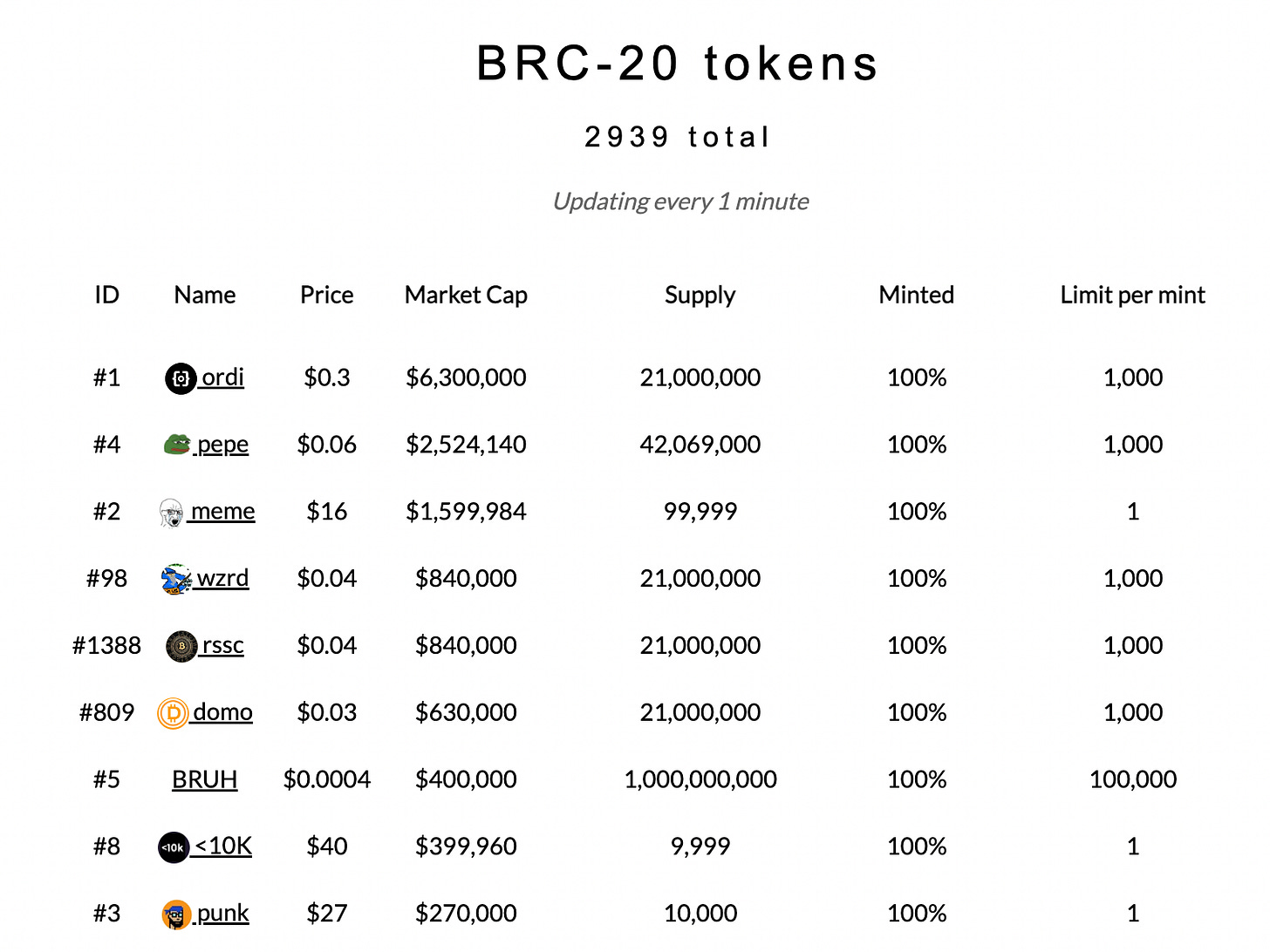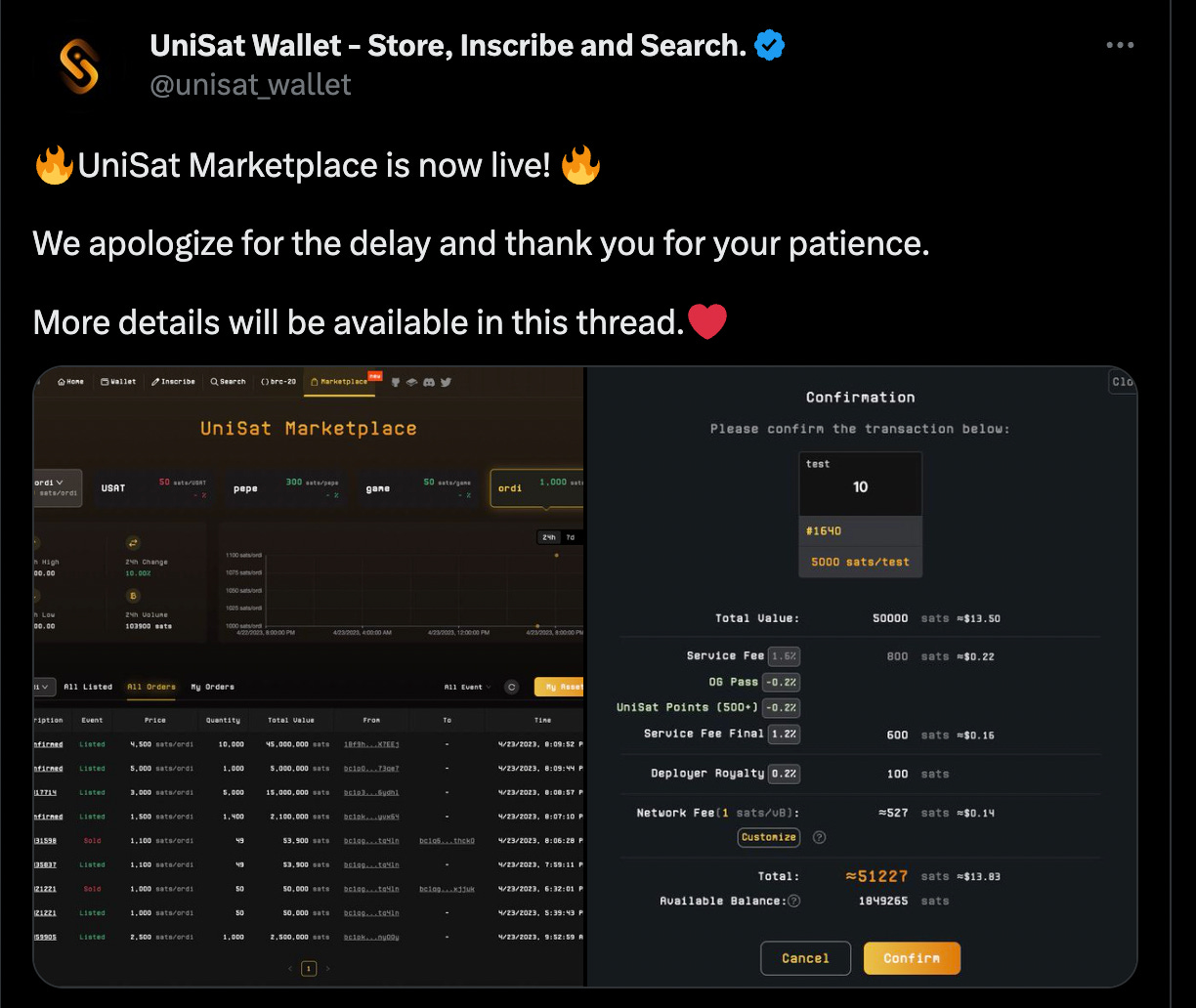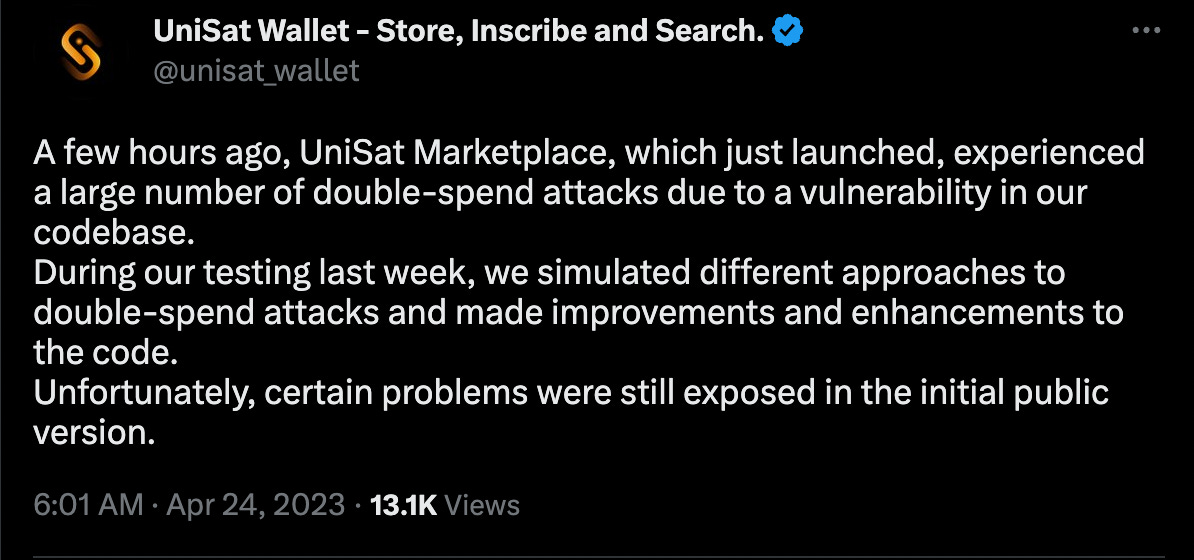The Brc-20 Standard on Bitcoin
If you are a Bitcoin maximalist the chance is that you are pissed off.
Why? All these infidels are polluting the king Bitcoin with stupid images and wasting block space.
Unfortunately, you can’t really stop people from doing so, as NFTs and DeFi on Bitcoin are a pretty huge deal.
Will it last? We don’t know.
Is Bitcoin the best place to do so? Probably not!
This article provides an overview of the BRC-20 standards, the rise of Ordinals, and tools such as UniSat that you can use to trade and inscribe them.
WTF IS THE BRC-20 STANDARD?
It is “an experimental fungible token created using Ordinals and Inscriptions and saved on the Bitcoin base chain. It utilizes Ordinal inscriptions of JSON data to deploy token contracts, mint tokens, and transfer tokens”.
The BRC-20 standard was created by @domodata on March 8th, 2023.
It’s not like the ERC-20 standard, which can create smart contract managing tokens and so on, but is a simple way to store a script in Bitcoin, and attribute non-fungible tokens to satoshis.
The demand for Ordinals has been unprecedented, generating over $ 22 million, and over 65k traders involving 27k users.
The main issue with Ordinals is that they were initially exchanged OTC, as they lacked specific infrastructure: de facto you had to rely on someone to effectively send you the ordinal you were paying for, as such, scammers blossomed.
The volume seems to have initially calmed after peaking at the end of February.
However, you can check the latest spike, resulting from the BRC-20 standard.
The amount of marketplaces dealing with ordinals keeps rising, and so is the Cumulative number of users.
The first BRC-20 token released was “Ordi”:
Here’s a list of the main BRC-20 tokens (there are currently about 3000 of them):
While BRC-20 is an interesting experiment, it probably is not a sustainable token standard for the future of Bitcoin.
Nonetheless, we already see tools popping up to help users deploy, mint, and send BRC-20 tokens “which could mean another subset of transactions competing for precious block space and interrupting your ability to secure 1 sat/vbyte transactions to secure your cold storage funds or create a lightning channel”.
UniSat
UniSat is an Open Source Wallet that can be downloaded as a Chrome Extension for Bitcoin Ordinals & brc-20. It allows users to:
Store, mint, and transfer your Ordinals NFTs and brc-20 tokens;
See unconfirmed NFTs immediately;
Inscribe without running a full-node;
NFT Marketplace.
Unfortunately, just a few hours after the launch of the UniSat Marketplace, the protocol experienced many “double-spend attacks due to a vulnerability in our codebase”.
It is, in fact, very important to keep this in mind while dealing with brc-20 tokens:
Food for Thought
BRC-20 adds useless on-chain data to satoshis, there’s really not much else to say there.
These tokens don’t mimic the same benefits of Bitcoin, they are not safer than other token standards
Even the creator distanced itself from this standard, which mostly started an experiment.
Nonetheless, the development of Unisat, other tools, and a strong degen community are pushing BRC-20 far beyond their boundaries.
As such: be careful with them, they are a new innovation and possibly worthless.















